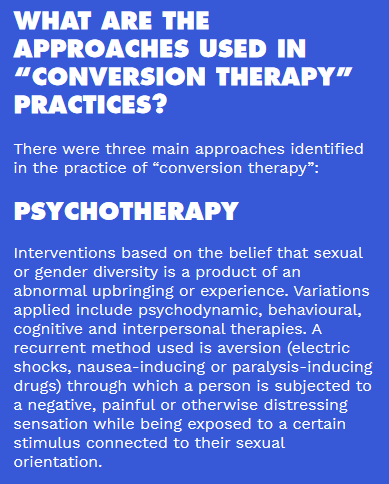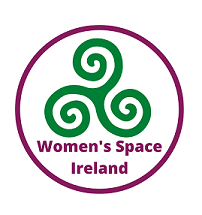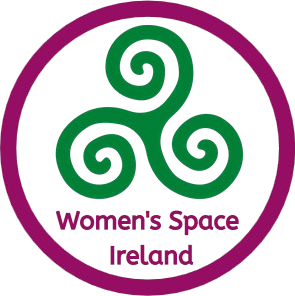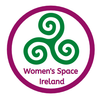Legislation promised - now evidence of need required
Many see including "gender identity" in a ban on conversion therapy as a Trojan Horse to prevent health professionals from doing their job of counselling young people. Is "affirmation" of young people leading to hormones and surgery the real "conversion therapy"?

Last week saw the publication of the Government's spring legislative programme with the inclusion of the promised "ban on conversion therapy":

In December Minister Roderic O'Gorman said in the Dáil that
"..the LGBTI+ National Youth Strategy 2018 – 2021 contains a commitment to prohibit the promotion or practice of conversion therapy by health professionals in Ireland, and the National LGBTI+ Inclusion Strategy 2019-2022 commits to ensuring that the practice of conversion therapy in Ireland is investigated and followed up with appropriate counter measures."
"I am pleased to say that my Department is now commissioning research to capture the views and experiences of people who have been subjected to the practice of conversion therapy in Ireland."
According to the Department of Children, Equality, Disability, Integration and Youth "The contract has still not been awarded but we expect it to be finalised very shortly."
However last week the UK's Equality and Human Rights Commission (EHRC) issued its response to the British government's consultation on their plan to ban conversion therapy. The EHRC said "in the absence of a clear legal definition of what is meant by conversion therapy"
"..we recommend that legislation should initially focus on banning conversion therapy attempting to change a person’s sexual orientation, where the evidence and impacts are clearer. Legislation to ban conversion therapy attempting to change a person to or from being transgender should follow, once more detailed and evidence-based proposals are available which can be properly scrutinised."
While almost no one, outside of some small religious groups, might seek to dissuade or change someone's sexual orientation the addition of "gender identity" to what would be understood as "gay conversion therapy" is in a very different category. Gender-related distress will alleviate for around 80% of pre-teen children once they become teenagers according to studies cited by Genspect, with many of these realising that they are in fact gay or lesbian and not the opposite sex.
The demand for a ban first made in the National LGBTI+ National Youth Strategy 2018 - 2020 was specifically aimed at health professionals:

In May 2018 when Senator Fintan Warfield's private members Prohibition of Conversion Therapies Bill was being read for the second time, the Minister of State at the Department of Health Catherine Byrne pointed out:
"The Government fully sees the intentions of this Bill but is concerned, based on legal advice, that the Bill is not clear enough in its language. Any issue with clarity will lead to difficulties. The definition of conversion therapy is itself open to an extremely broad interpretation. As I mentioned, there is reference to any practice or treatment by any person that seeks to change or to suppress a person’s sexual orientation or gender identity. A difficulty, for example, is that it is not clear what practice or treatment is covered here. I note as well that the definition of 'professional' covers an extremely broad spectrum. It refers to a person who is in possession of an official qualification or a warrant to practice or both as a care worker, counsellor, educator, family therapist, medical practitioner, pathologist, psychologist, psychotherapist, psychiatrist, social worker or youth worker."
The Minister of State added:
It would be useful to hear more about the thinking on this. I know the Senators will agree it is of vital importance that, where a criminal offence is created, especially with imprisonment on conviction, the actions which amount to an offence are clear and unambiguous. We would have to be clear on the wording in the Bill so there is certainty on what amounts to an offence under this Bill.
It important, therefore, that if we are to achieve the objective of the Bill, we must work together to look at what changes may be needed. Another point is that it is very apparent that dealing with legislation on conversion therapy will need appropriate input across Government as part of the examination of the Bill. We also need to get an evidence base to establish the prevalence of conversion therapy in Ireland.
Senator Ivana Bacik commented:
"The Minister of State commented on the internal system and I am glad the Government will not oppose the legislation. I recognise that she has raised issues about the vagueness of wording in respect of the criminal offence. Senator Warfield and I have had long chats about the wording and the need to be precise and specific in language when creating criminal offences while being particularly mindful of the provisions of Article 38.1 of the Constitution and the extensive case law that exists."
Senator Warfield himself commented:
"The Bill represents the first attempt by these Houses and, by extension, the State to navigate our way through certain language such as 'sexual orientation', 'gender identity' and 'gender expression'. From my understanding, none of this language, even within gender recognition legislation, has been defined in legislation."

It is indeed surely necessary that "gender identity" be defined if we are to introduce legislation based on this concept or belief.
Seeking evidence of conversion therapy being practiced in this country
In May last year Minister O’Gorman launched the LGBTI+ Youth in Ireland Europe: A two-phased Landscape and Research Gap Analysis. Research which was conducted jointly by the Department of Children, Equality, Disability, Integration and Youth (DCEDIY) and NUI Galway reviewed all relevant research on LGBT+ youth (defined as under the age of 26) in Ireland and Europe between 2000 and Sept 2019. It defined conversion therapy as "A psychotherapeutic intervention that attempts reverting someone’s lesbian, gay or bisexual orientation to heterosexual" yet the authors say
"We have not identified any European studies on conversion therapies (sometimes called reparative therapies) in SGM [sexual and gender minority] adolescents. These interventions generally aim to change an individual’s sexual orientation to heterosexual."
At the June 2021 meeting of the National LGBTI+ Inclusion Strategy Steering Committee it was recorded that

In August The Journal reported a spokesperson for Minister O’Gorman as saying
“we need to look at the extent and the nature of it here.
“Obviously for any law you need a proper evidence base, and if you’re putting into law something that comes with a prohibition you have to be absolutely clear what the activity is that you’re looking to outlaw.”
It was admitted that there is a lack of data and research available on the practice of conversion therapy and which settings it may occur in, which could include "non-clinical practices like religious settings" although this is not what was sought in the the LGBTI+ National Youth Strategy 2018 – 2021 which specifically singled out "health professionals".
The Minister himself in The Irish Times in September said
"What we are seeking to do is outlaw an outdated, harmful and unscientific practice, which has caused great harm over many years, and is most frequently found in religious or faith-based settings."
"To be clear: legislation banning conversion therapy is coming. It is a commitment in both the Programme for Government and the LGBTI+ National Youth Strategy, and it is a commitment that, as Minister for Equality, I strongly support."
When the original tender to provide the detailed research was published it included the qualification "the development of legislation if required.":


Is "affirmation" the real "conversion therapy"?
The EHRC concluded last week:
"The Commission agrees that banning conversion therapy must not result in interference with professional and regulated clinicians and healthcare staff providing legitimate support for those who seek counselling about their sexual orientation or being transgender. However, the Commission is concerned about the proportionality of the proposed measures and risk of unintended consequences, and is unclear as to how the Government intends to avoid a chilling effect on healthcare professionals who may be deterred from offering legitimate professional services due to a fear of being caught by the proposed ban."
"We are concerned that the consultation does not make sufficiently clear in section 5.2 which forms of communication would be caught by a ban on talking conversion therapy, as this term is used as a ‘working term’. The Government should make clear that psychological, medical and healthcare staff can continue to provide support to people experiencing gender dysphoria; this should include support to reduce distress and reconcile a person to their biological sex where clinically indicated, including for children and young people aged under 18 if this is in their best interests."
Already the UK's GIRES, the Gender Identity Research and Education Society is describing this as "a prime example of CT".
The legislation has been promised here but the evidence of need for it hasn't yet been established. This doesn't appear to be enough for some:

Many see a ban on conversion therapy which includes gender identity as a Trojan Horse to prevent health professionals from doing their job of counselling young people to explore the reasons for their psychological distress instead of immediately "affirming" them as being of the opposite sex leading to puberty blockers, opposite sex hormones and possible surgery with lifetime consequences for their health and wellbeing.
The Government does not realize that advertising for harmful products like binders target children who don't conform to gender stereotypes.
— LGB Alliance (@ALLIANCELGB) February 3, 2022
This is “conversion therapy” - encouraging a belief they need to change their bodies to become the opposite sex.👇https://t.co/HZsVYUNJWX

In their submission last month to the UK Government regarding a ban on conversion therapy there, the parents group Bayswater Support Group makes the pertinent point:
"Please ensure that any time limits for bringing criminal proceedings do not deny victims of physical conversion therapy their chance at justice, simply because it has taken them years to recognise what they have suffered at the hands of others."


